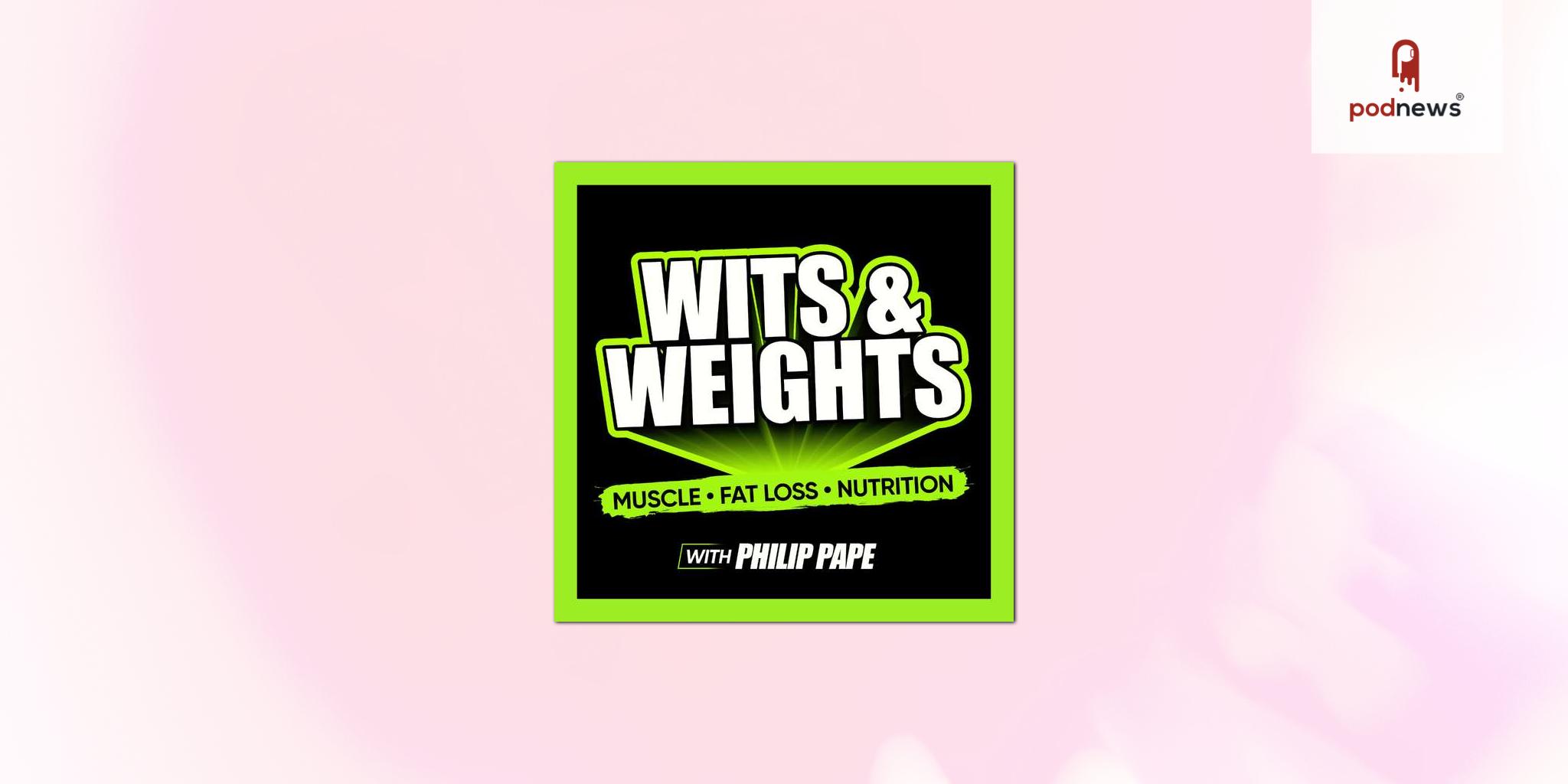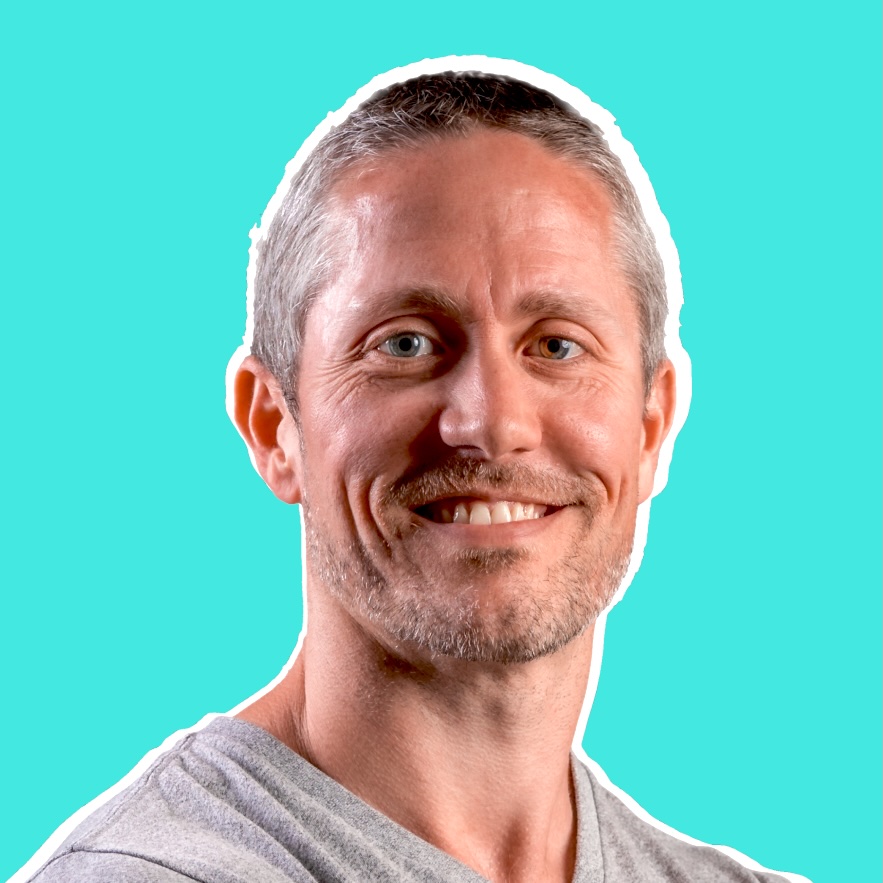
How I make... Evergreen Content for Wits & Weights

This article is at least a year old
Trends are fleeting, but principles are forever.
With Wits & Weights, I’ve always aimed to create episodes that are relevant a month, a year, even ten years from now. In the health and fitness space (especially the Nutrition category), content often hooks you by appealing to fads and camps, the shiny objects of social media virality and curiosity. Low carb diets! Seed oils! Weight loss drugs!
While these topics might garner clicks, they don’t always attract your ideal listener, the person who will binge your episodes, follow, reach out, and voraciously consume (and ultimately act upon) those episodes you lovingly craft every week.
I’m a man of efficiency. What’s more efficient than getting the most out of each episode?
That’s why I prefer creating content that feels as relevant to a listener discovering it today as it did when it first dropped. Such evergreen content has perennial, recurring value (it’s not uncommon for a new listener to download hundreds of older episodes to “catch up”).
It’s a delicate balance: pulling from the latest understanding of science, injecting a bit of my quirky, nerdy, and gosh-darnit if I ever drop an f-bomb personality, but still honoring universal principles and frameworks that people can apply to their own lives, regardless of when they hit play.
Sure, the occasional episode will drop in your feed to celebrate National Cooking Day or the Paris 2024 Olympics or “the dark side of weight loss drugs” or my recent experiment with peptides for shoulder recovery.
But far more often, they hone in on answering a specific problem that humans have (and will always) have to give you a lightbulb moment that makes you question everything in a very productive, motivated way (and want to learn more). Such as, “I’ve been struggling trying to lose weight for years and tried every diet and workout program. There’s so much confusing information out there. I’m completely frustrated and defeated, so what do I do?”
I then find myself having a conversation with a follower, community member, or potential client and saying, “here, check out this episode (from 2 years ago) that answers the exact question you’re asking.” It’s my Alexandria’s Library (except it will never burn to the ground because… digital).
Below is a peek into how I create this type of content, drawing from my worldview, coaching philosophy, and podcast production process.
What’s More Timeless Than YOU?
The core of my evergreen approach is a consistent philosophy that goes beyond specific trends, methods, diets, programs, or simply 'how to’ do something. It’s my voice and unique perspective on that philosophy that makes it stand out.
Ask yourself, is the content of my episode “google-able”?
We want a hard “no” to that question.
For example, my episodes are centered on evidence-based nutrition, strength training, and what I call “the engineering of the human body.” I’ve even coined a pretentious moniker: The Physique Engineer. While the information and methods I touch upon are google-able, the way I apply engineering frameworks to health and fitness in my own unique way is not, nor are my personal experience, style, and opinions. In other words, my worldview.
My background as an engineer (software, project, and management in mostly the aerospace industry) shapes how I think about health and fitness. There’s always a process to follow, a principle to test, and an outcome to iterate on. Experiment! You (yes, YOU) are the best “evidence” of what works.
I weave this philosophy in new and intriguing ways (or at least try to) when I prepare my notes and quotes for an episode. Sometimes, I get nerdy with frameworks… like Bayesian Inference, which allows us to update beliefs with new evidence, or Iterative Design, where repeated cycles lead to continuous improvement.
But I don’t want to lose my audience with technical jargon, even if it does appeal to people like me.
So, I imagine I’m talking to my mom, who (and she would totally admit this) hasn’t a clue when it comes to anything “engineering-y,” to make sure my language is accessible. Tells a story. Reveals my self-esteem issues and imposter syndrome. Is from the heart but full of credibility built on hard knocks, some decent level of emotional intelligence, and ultimately trying to help others experience the same revelations with their fitness journey I experienced… that it CAN be fun, flexible, and freeing while still working FOR you to make you feel and look better than ever. Plus it’s efficient, so it saves you time and stress.
I make sure each episode speaks to the long-term journey we’re all on, while pushing a sense of urgency, energy, and momentum to take action.
I leave the listener hanging not in a click-baity, cliffhanger sort of way, but a “wow you just lifted me up and inspired me with a new way to think about this, AND gave me confidence that it CAN be done, so… what do I do about it?” way.
Which leads to… conversations!
If the goal is to build a business from your podcast, more conversations seems like a great place to start.
I learned after about two years of podcasting that telling listeners exactly how to do something was too much like every other Health & Fitness podcast, the irony being it didn’t actually help the listener take action.
Think about it…how many shows do YOU binge but never do anything with the information?
On the other hand, a show that surprises you, unlocks new thought patterns, wakes you up, makes you wonder, and leaves you wanting more, THAT is bingeworthy but also actionable (as in, take action to connect with the host).
Episode Ideation and Storytelling
Each episode begins with the question: “If someone were to hear this three years from now, would it still help and spur them to action?” This thought filters everything I do—from the topics I select to the guests I invite on the show.
When crafting a topic or inviting a guest, I want to transcend specific diets or training programs and touch on principles. For example, instead of talking about “the best exercises for muscle growth” or “how to train for muscle growth,” I might explore the principles of muscle growth that let you select exercises that save time in the gym and make you less sore so you can get the most muscle growth on ANY program.
Then, the call to action could be to download my guide on customizing your programming based on those principles or a specific workout program (here’s the link, and they join my email list) or to reach out for help finding the right program for you (at this handle or email address, and it starts a conversation).
I also leave room to inject “me.” For example, I love bad puns and dad jokes. They make the content fun and add an unmistakable personal touch. Humor is timeless. Whether you’re listening today or in five years, a well-placed pun can make the message stick without feeling forced. And by well-placed, I mean awkwardly in-the-moment and totally impromptu so it evokes the proper level of cringe while simultaneously making you want to keep listening to this oddball who nonetheless seems to know a few things.
And despite the appeal for more clicks and downloads, I avoid fads, those “silver bullet” solutions that tend to be the buzziest topics in the fitness space but often fade away when new studies debunk them and the trolls slink away to their troll caves.
(I am NOT averse to click-baity titles, as long as the episode content delivers, even in a belief-shifting, unexpected way, on the promise.)
Instead, I focus on principles and concepts like progressive overload, sustainability, metabolic health, and behavioral psychology—things that will still hold value years from now. Aligned with my philosophy. Leaving you wanting more.
As for analytics and structure, I’m looking to create episodes with about 85-95% average consumption with strong, relevant calls to action (the same CTA early on and later in the episode).
Guest Selection
When choosing guests, I look for those whose knowledge will “age” well (evergreen).
These days, I invite guests that I personally follow and admire, who I’d be giddy to talk to. These include thought leaders and positive-minded experts who can geek out with me, in contrast yet another fitness coach or “fitfluencer” pushing supplements or their “revolutionary” gut health, hormone recovery, low-carb diet, or shredded six-pack abs program. I’m seeking deeper (read: more nuanced) explorations of physiology, nutrition, and psychology that listeners will eat up (in analytics terms: 80% or more average consumption for guest episodes).
Bonus if the guest rarely or never talks about the topic we’re diving into. They’re more likely to be excited about it and share it with their followers.
I like to challenge my guests, which means people who aren’t afraid to change their minds based on new evidence but never at the expense of sound foundational principles. Respectful conflict keeps the listener engaged! These are conversations that someone can pick up months or years later and still find useful because they get at the core of how to think critically about health and fitness.
Here’s a tip: don’t be afraid to invite the biggest, most popular “dream” guests you can imagine. The worst they can do is say no, and more often than not, you’ll get a surprising “yes.”
Evergreen Production
On the production side, I lean into quality over quantity. High production quality supports the evergreen nature of my content by ensuring it remains listenable and impactful over time.
Listeners might get overwhelmed with too many episodes. They feel they can never “catch up” (which might prevent them from reaching out to YOU). I used to produce 5 episodes a week, and now it’s 3, with per-episode downloads increasing at a faster rate.
Clear audio (I use a Shure MV7+ mic with denoise and pop filter settings on) and well-structured storytelling make it easier for listeners to stay engaged, whether they’re tuning in now or years down the road.
I take the time (down from 12 to 2 hours per episode after automating most of my system) to craft consistently structured, well-signposted (use segments!), worldview-centric (recall: not “how to”) episodes of high quality that can stand out.
Some more tips: (very) short teasers that hook the listener, lots of vocal variety (join Toastmasters and practice those speaking mechanics!), and having a “Lift” at the end that gives the listener a final “juicy payoff” (thanks to Jeremy Enns for this idea).
Evergreen also means ever-listenable.
Make It Relevant to the LISTENER
Ultimately, my goal is for Wits & Weights to become a pocket companion for listeners on their fitness journey—whether they’re just starting out or have been lifting weights and tracking food for a decade.
I aim to provide a perspective that evolves with the listener, adapting to their changing needs, challenges, and goals. People are always changing, and I want my episodes to grow with them by offering insights that remain relevant as they progress. That means keeping each topic, story, and insight universal and practical.
Lastly, I’m constantly updating my own thinking—learning, reading, and even shifting my stance if the evidence calls for it. I think listeners appreciate that (call it authenticity, call it skepticism, call it doing the work, just don’t call it late for dinner… I told you I like terrible dad jokes).
Being willing to adapt is as timeless (and evergreen) as it comes.
Listen
Philip Pape, Evidence-Based Nutrition Coach & Fat Loss Expert
Play trailer


































































































